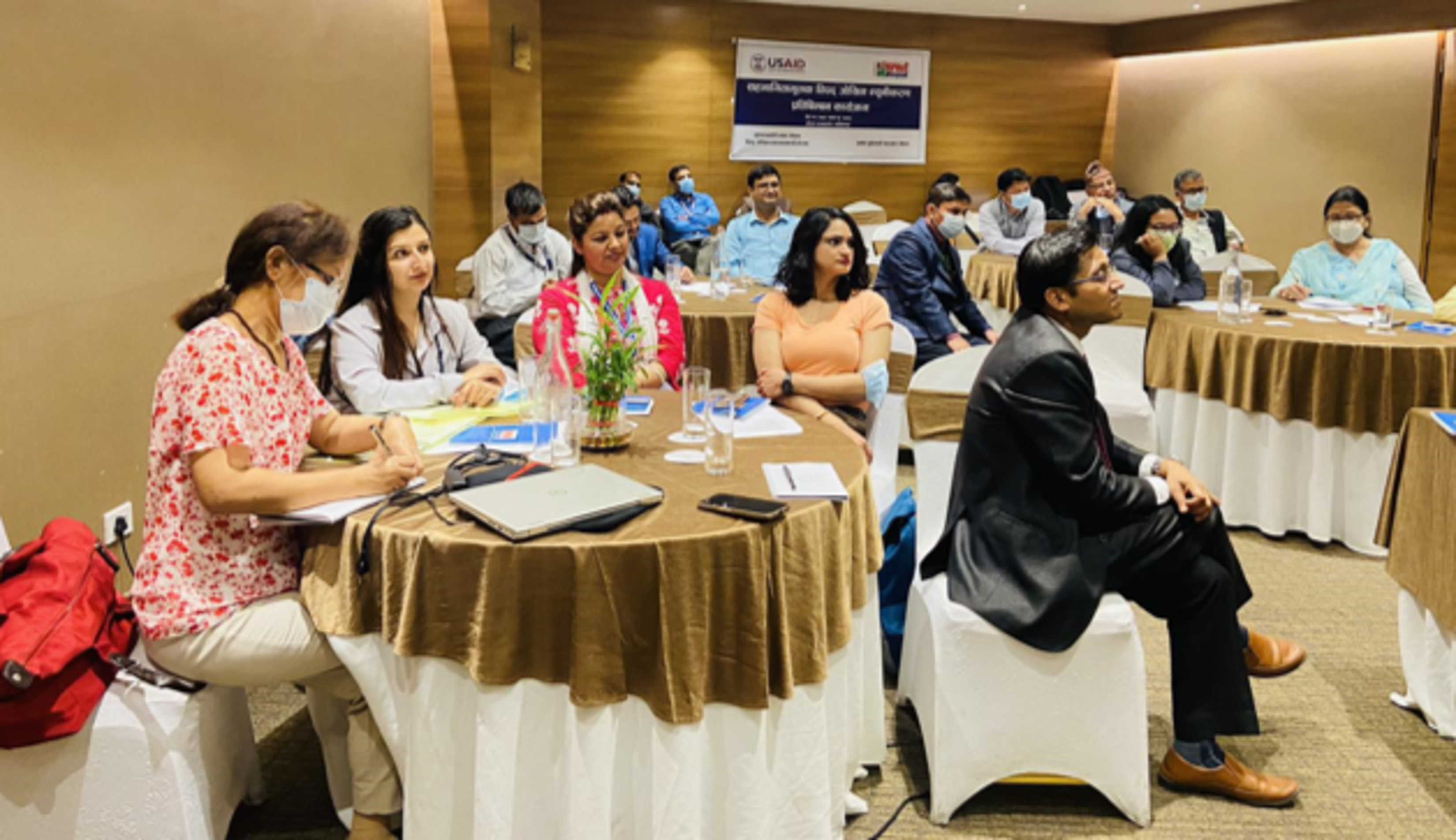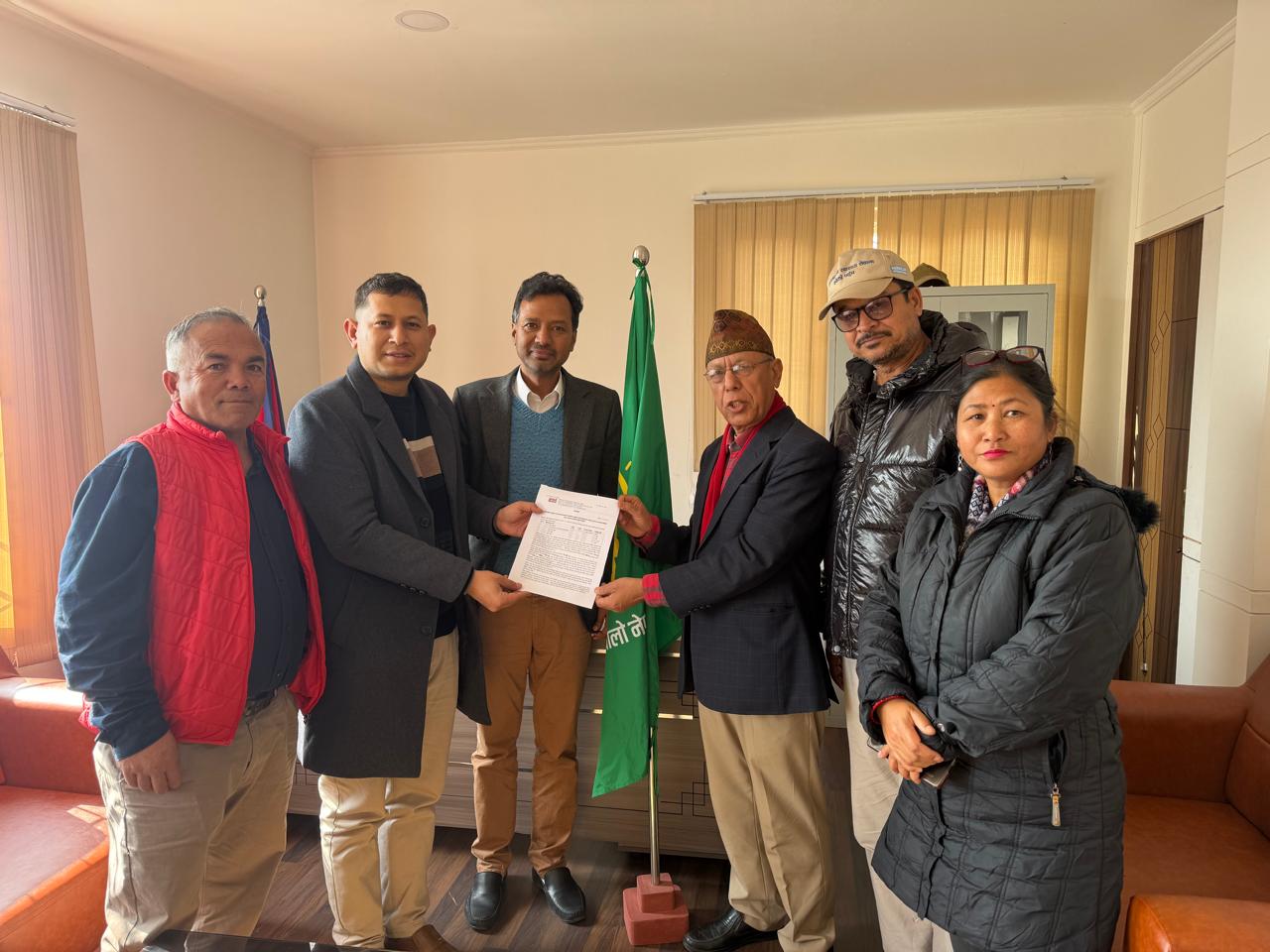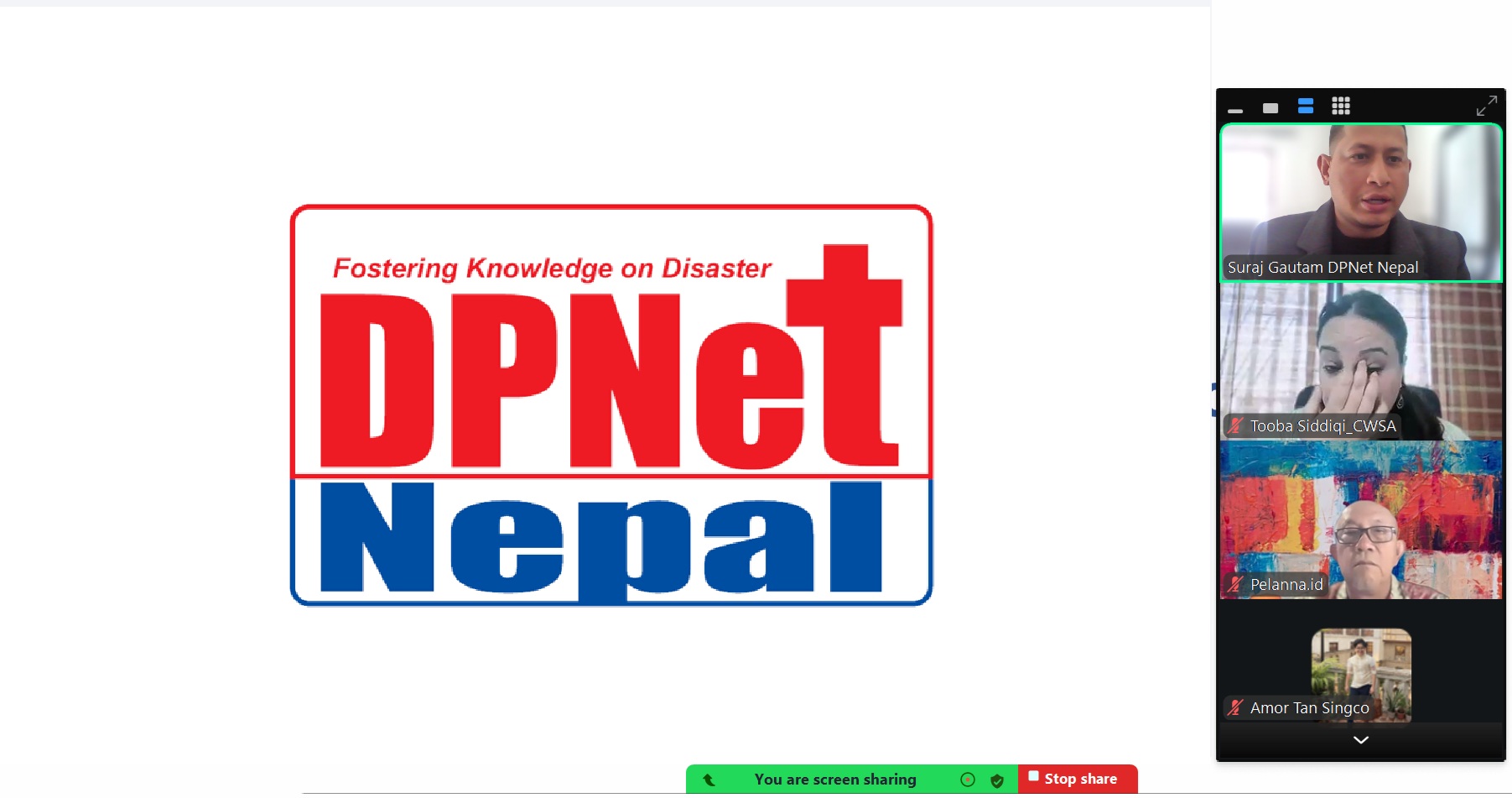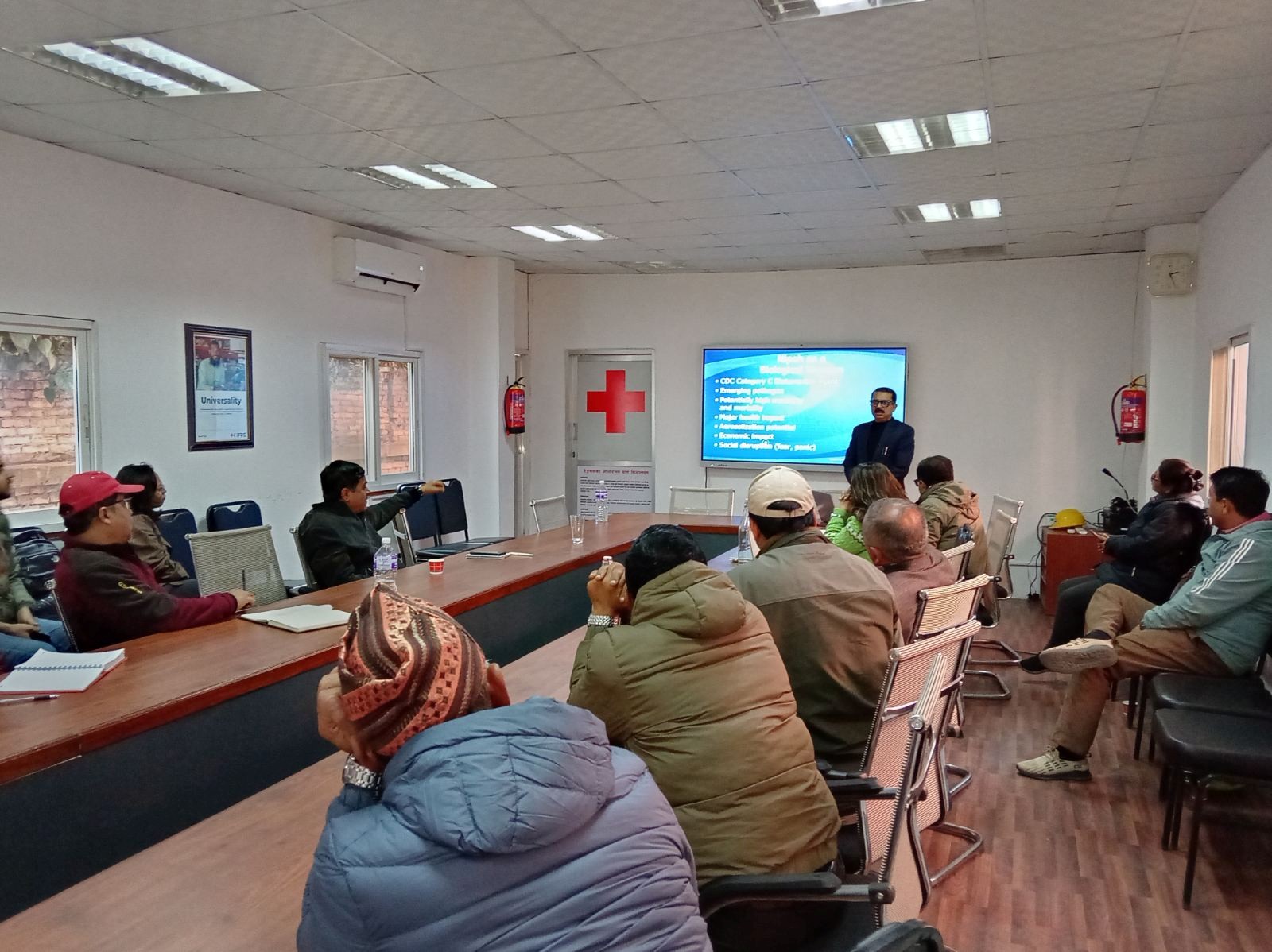Participatory Reflection Meeting

DPNet Nepal has been implementing the Chhemata Abhibriddhi (Capacity Enhancement for Disaster Risk Reduction and Management DR&RM) program with the financial support from USAID Tayar Nepal. The one-year program had several activities to initiate the capacity enhancement program with particular focus on engaging the multi-stakeholders in DRR&M actions in a systematic way. As the capacity enhancement is a long-term process, the learning needs to be carried out further by the concerned stakeholders. A participatory reflection meeting was conducted on March 25, 2022 at Hotel Ambassador, Lazimpath to discuss the key activities implemented, the achievements made, and the way forward to sustain the initiatives. Ms. Sujata Chhetri, Admin and Finance Officer of DPNet welcomed the guest and introduced the objectives of the program. Dr. Raju Thapa, Acting Chair, DPNet Nepal chaired and mediated the event. In the event there were 32 participants (75% male, 25% female), from diverse caste ethnic group (56.25% Brahmin/ Chhetri, 21.85% Janajati, 21.87% Newar, 0% Dalit, 6.25% Persons with Disabilities) and from different sectors (18.75% Government, 31.25% NGO, 15.62% Private, 6.25% INGO, 28.12% other).
Major Highlights:
- Dr. Raju Thapa, Acting Chair of DPNet Nepal, presented the achievements of the project and explained the formation of the National Platform for Disaster Risk Reduction NPDRR’s nine thematic groups and development of their working guideline. The Online Resource Center (ORC) has been established so all documents can be stored in one place for easy access of resources on DRR to all individuals, at present the center has more than thousands documents. The resource center has also been developed keeping accessibility in mind. It has features such as high contrast, increased font, marker line among a few for persons with visual impairments and those who are colorblind. Sphere standards were translated to Nepali in order to remove the language barrier. 'Virtual Discussion Platform' was established for important discussions on the matters related to DRR. Four training on Sphere Sensitization and two on Sphere Training were held in Karnali and the Far-Western region. According to the data the project was 96% successful. The learnings for the program were as follows: a) DRRM is still not a priority area for Nepal, b) There is a lack of understanding about DRR and c) The Palikas need to work on strengthening their database on DRR&M.
- Mr. Jaganath Prasad Kurmi, Coordinator of Affected Community Thematic Group, highlighted that for their thematic group it may be difficult to understand the laws and policies on DRR. As they can witness all things happening at ground level they have observed that the plans have not been implemented as discussed. He added that, attention should be given to preparedness and mitigation measures in the community instead of only relief and rescue. NPDRR members from the thematic groups should be involved in various plans and programs that can be implemented for DRR.
- Dr. Dijan Bhattarai, Under Secretary of NDRRMA, said that there should be clear goals by looking at the need of the nation for DRR. The members of the different thematic groups should make an action plan for DRR&M in their own organizations as well. He added that if the individuals and organization have clear plans they can find the resources and the NDRRMA will also help in its implementation. The BIPAD portal belongs to the nation and the thematic groups can help to add resources on it. The Academia and Research Based Organizations can help to develop a roster for DRR. DPNet Nepal is the Secretariat for the NPDRR and they should ensure its sustainability effectively.
- Mr. Tirtha Raj Joshi, Deputy Chief of Party of USAID Tayar Nepal, highlighted the work done by DPNet Nepal. He further said that even though the project has come to an end the process of learning from each other for different thematic groups should go further. The different thematic groups of NPDRR need to become sustainable in order to achieve NPDRR's goal.
- Mr. Pradip Koirala, Joint Secretary MoHA shed light on the role of NPDRR in Nepal’s disaster risk reduction and management. He added that the groups are autonomous and they need to make consistent efforts to ensure their sustainability. He highlighted that Monitor for Disaster Strategic Actions (MDSA) is a web based, centralized system for logging and monitoring projects being operated around the nation that delivers against the National Disaster Risk Reduction Strategic Action Plan 2018-2030. It also links with the BIPAD system for crosslinking information with disasters. The information given on the BIPAD portal is verified data from the government and it can be used for research and other purposes. He claimed that the private sector needs to work on risk transfer by insuring their business, as the government can only provide relief. Only training is not enough; they should be involved in the different forums.
Major Discussions:
- The NGO thematic NPDRR group can aid in putting forth the issues of vulnerable groups, and persons with disabilities.
- The INGO thematic group can add to the risk assessment in the Palikas.
- The Private Sector thematic group should coordinate for technical support for DRR&M.
- Academia and Research Based Organization thematic group should emphasized on investment on sound research to identify the gaps and address it.
- Media and IT group, need to focus on sensitization to understand disaster and highlight the necessity for a Media handbook on how to write about DRR for the different sectors.
- The members of the society should contribute monetarily towards DRR&M by setting aside a small percentage of their income.
- Interaction between the government and the civil society should be held regularly.
- Accessibility is important for persons with disabilities and thematic groups should follow the principle of no one left behind and ensure that their action plan also addresses the needs of persons with disabilities. Documents should also be made accessible for all.
- Mr. Dinanath Bhandari from DPNet, Mr. Amrit Sharma from Academia and Research Based Organization thematic group, and Mr. Dinesh Gurung from INGO thematic group have volunteered to develop the Five Year Plan of NPDRR. Dr. Raju Thapa, Acting Chair of DPNet Nepal thanked all participants for their active participation and closed the program.
Dr. Raju Thapa, Acting Chair of DPNet Nepal thanked all participants for their active participation and closed the program.











